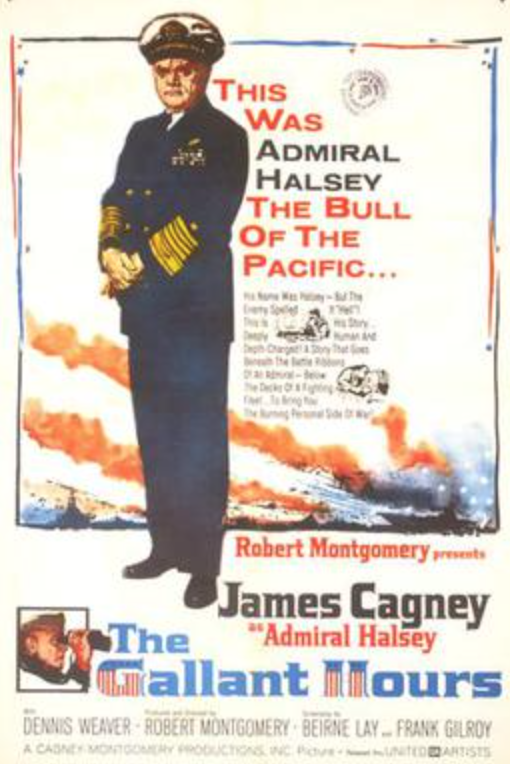- Messages
- 17,507
- Location
- New York City
Ransom! from 1956 with Glenn Ford, Donna Reed, Leslie Nielsen, Juano Hernandez, Robert Keith, Richard Gaines, and Ainslie Pryor
Ransom! is not easy movie watching, but it is darn good storytelling that examines the perpetual dilemma of whether or not to pay a kidnapper's ransom. In real life, that decision is often driven less by logic and more by emotion and social pressure.
All that is challenged in Ransom!, where Glenn Ford and Donna Reed play the wealthy parents of a nine-year-old boy who is kidnapped. The kidnappers then demand the, for the time, huge sum of half a million dollars.
Ford, a CEO of a successful company, at the urging of nearly everyone – his wife, his brother, the firm's lawyer, and popular opinion – agrees to pay, even when the local police chief notes that if no one paid the entire kidnapping racket would stop.
Then a newspaperman, played by Leslie Nielsen, who wheedled his way into Ford's inner circle, notes that even if Ford pays, the kidnappers are still incentivised to kill the boy to eliminate a witness.
Ford, in one of the great movie "I stand alone" moments, then decides not only to refuse to pay but also to announce to the world – and the kidnappers – that the ransom money will instead be used as a reward to find the kidnappers if his boy isn't returned safely.
It's brilliant, and daring, and would end the entire game of kidnapping if everyone did the same. It turns the movie's seemingly simple story of "of course you pay the ransom and hope you get the child back" upside down, using an unorthodox and divisive choice to reveal the moral complexity involved.
Ford, though, is denounced by almost everyone, including his going-to-pieces wife, his self-righteous brother, his smarmy lawyer, and most of the public and press.
It's now Ford, with the surprising support of Neilson, plus Ford's chauffeur/houseman, played by Juano Hernandez, standing against pretty much everyone as the pressure becomes intense. It's a cauldron of public and private fury designed to break a man as it might do to Ford.
The rest of the movie should be seen fresh, with an denouement, like the buildup, that has echoes of 1951's Ace in the Hole as the "circus –" the media and onlookers – evanesces as quickly as it came together once there is nothing left to feed upon.
The performances in this low-budget effort – shot in black and white on all but one set – are excellent. Director Alex Segal assembled a strong cast of tier-two stars, including the outstanding Robert Keith as the police chief who is in CYA mode the entire time.
Richard Gaines, as the greedy corporate lawyer, and Ainslie Pryor, as Ford's sanctimonious brother, deserve mention, too, for creating characters you slowly come to loathe. Reed, as the wife who breaks under the pressure, gives a movingly impressive performance.
Juano Hernandez, an actor who never had a false moment on screen, is outstanding as Ford's loyal chauffeur/houseman. The man knows how to portray emotions with facial expressions. It's unfortunate that being black in this era often relegated him to these types of supporting roles.
Whether the intent was to make an Ayn Rand story or not doesn't matter, as that's what the writers did with Ford's character. He's a man of conviction, who ignores public opinion – he does not bow to the pleas to show mercy or selflessness.
Rand's philosophy avers that an individual should make choices based on his sincere belief as to what is right and not based on public opinion or cries for mercy or charity. Ford isn't greedy – but Randian like – if he's seen that way, he's willing to stand by his convictions.
There is also an odd slant on the economic concept of the tragedy of the commons here, but it's that each person, trying to solve his or her own kidnapping issue, actually encourages future kidnappings. Ford's approach thwarts that problem too.
In Ransom! you come for the basic kidnapping story only to find yourself in an Ayn Rand novel where a man of honor is willing to stand up to a public opinion and even be denounced as "selfish –" always our most damning public rebuke – for what he believes.
You get outstanding acting, a good story, and an atypical philosophical take on a timeless problem in Ransom! – pretty impressive for a low-budget, black-and-white midcentury movie.
N. B. For a different cultural take on kidnapping, but one where many of the same issues and emotions are in play, look for the excellent 1963 Japanese movie High and Low (comments on it here: #31,625 ). It explores how economic disparities in society drive kidnappings, while also weaving in a compelling moral dilemma over paying the ransom, similar to Ransom!.



